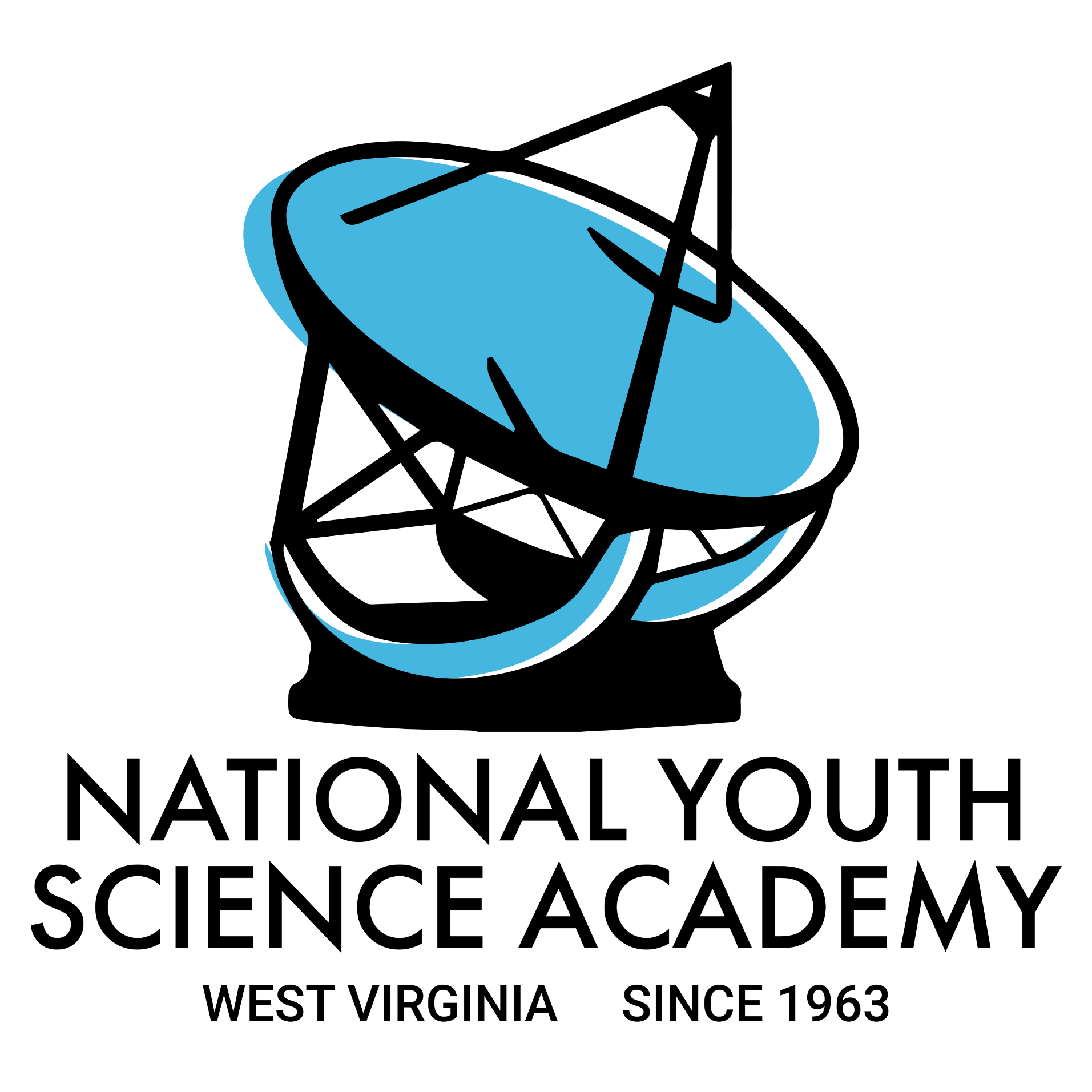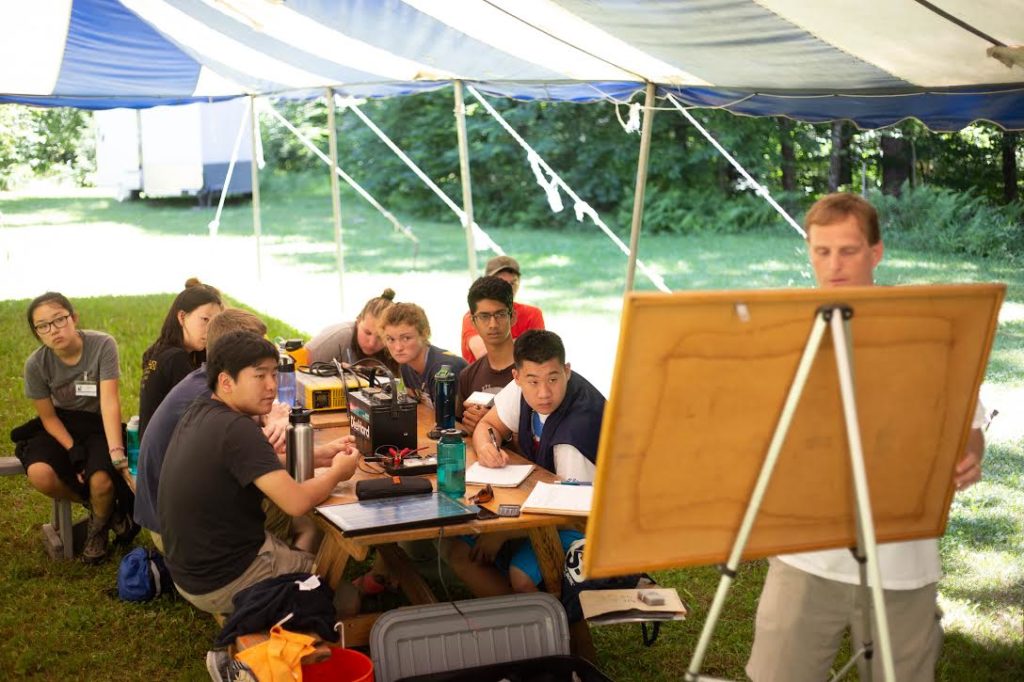Steve Blasberg used a projector on top of a picnic table. Next to him, musical instruments sat in their cases.
Delegates leaned in to listen as Blasberg, a National Youth Science Camp alumnus who has been a math instructor at West Valley College in Saratoga, California since 1975, talked about how to use math to predict a person’s chances of dominant or recessive traits. In this dining hall turned performing arts area turned math classroom, Blasberg described how inbreeding led to higher chances of hemophilia among European royal families.
Evan Mizerak, of Holden, Massachusetts, was nodding his head during the lecture. Following day two of the directed study, Mizerak said he prefers biology, but he enjoys math as well.
“This directed study gave me the opportunity to combine those two,” he said. “It’s also taught in a really engaging way.”
Mizerak plans to attend Brown University, but he isn’t sure whether he wants to go into research or diagnosing illness. He worked with researchers in a molecular biology lab at University of Massachusetts Medical School in high school, investigating how nutritional factors affect an organism’s way to defend itself against DNA damage.
It was only the second full day of camp, but Mizerak already had the idea.
“The best part of these things is always the people,” he said. “They’re what make this awesome.”
“I definitely think I learn as much from other delegates as I do the lecturers.”
He had some idea what to expect, from presenting research at seminars and competing in science fairs. The science fair, by the way, is what brought him to science camp this year. Despite those experience, “This is definitely way out of my comfort zone,” Mizerak said. “It really opens your eyes to emerging fields in a way I think is unique.”
Elizabeth Skelly, of Saint Charles, Missouri, also appreciated examples of math applications. She is interested in math and wants to pursue nanochemistry — specifically, she wants to use nanotechnology to reduce cancer treatment effects on non-cancerous parts of the body.
“I hope that in college I can merge the math that I love and the chemistry research that I find interesting,” she said.
She noted that the class demonstrated that pursuing math can lead to career paths other than working as an accountant.
“This class showed me there are possibilities,” she said. “It does happen and you can do it.”
Also Saturday, Will Dickson, University Innovation Champion for General Motors, spoke to 2018 National Youth Science Camp delegates about how pursuing science and engineering careers can lead to widespread human impact, whether by leading a company, conducting research or designing a vehicle. He concluded by encouraging delegates to get to know each other, break down barriers and “keep fences down.”
Like all speakers so far, Dickson spent much of his time responding to question after question.
Saturday afternoon, staph*-member Gavin Caupp took some delegates for a nature photography walk. They took pictures of butterflies in flowering trees. Nearby in the shade, Ryan Haupt, a paleontologist who serves as a research fellow at the Smithsonian Institution’s National Museum of Natural History, used a chalkboard to conduct a seminar.
After dinner, Tia Vierling, of Moscow, Idaho, sang and played the ukulele, then Theresa Chen, of Midland, Michigan, played jazz on piano. Both received standing ovations.
Saturday evening, Dr. Mac Louthan, who has forty years of experience in materials selection and qualification for advanced nuclear systems, failure analysis, applied and fundamental research, and teaching, explained “Why Stuff Falls Apart” by looking into six fundamental causes of failure in large engineered systems.
Addison Green, a delegate from Mississippi, said that the tips would be useful in any application and that the humor was “spot-on.”
“I thought it was really engaging,” he said.
Louthan compared human failures, like asking out the wrong woman, with engineering failures, like choosing the wrong materials, and talked about how inadequate service can lead to disasters, in everything from personal vehicles to space shuttles.
“You’ve got to be willing to put your neck on the line,” he told them. “You can’t let costs, schedule and peer pressure keep you from doing something you want to do.”
A more extended photo gallery can be found here.




